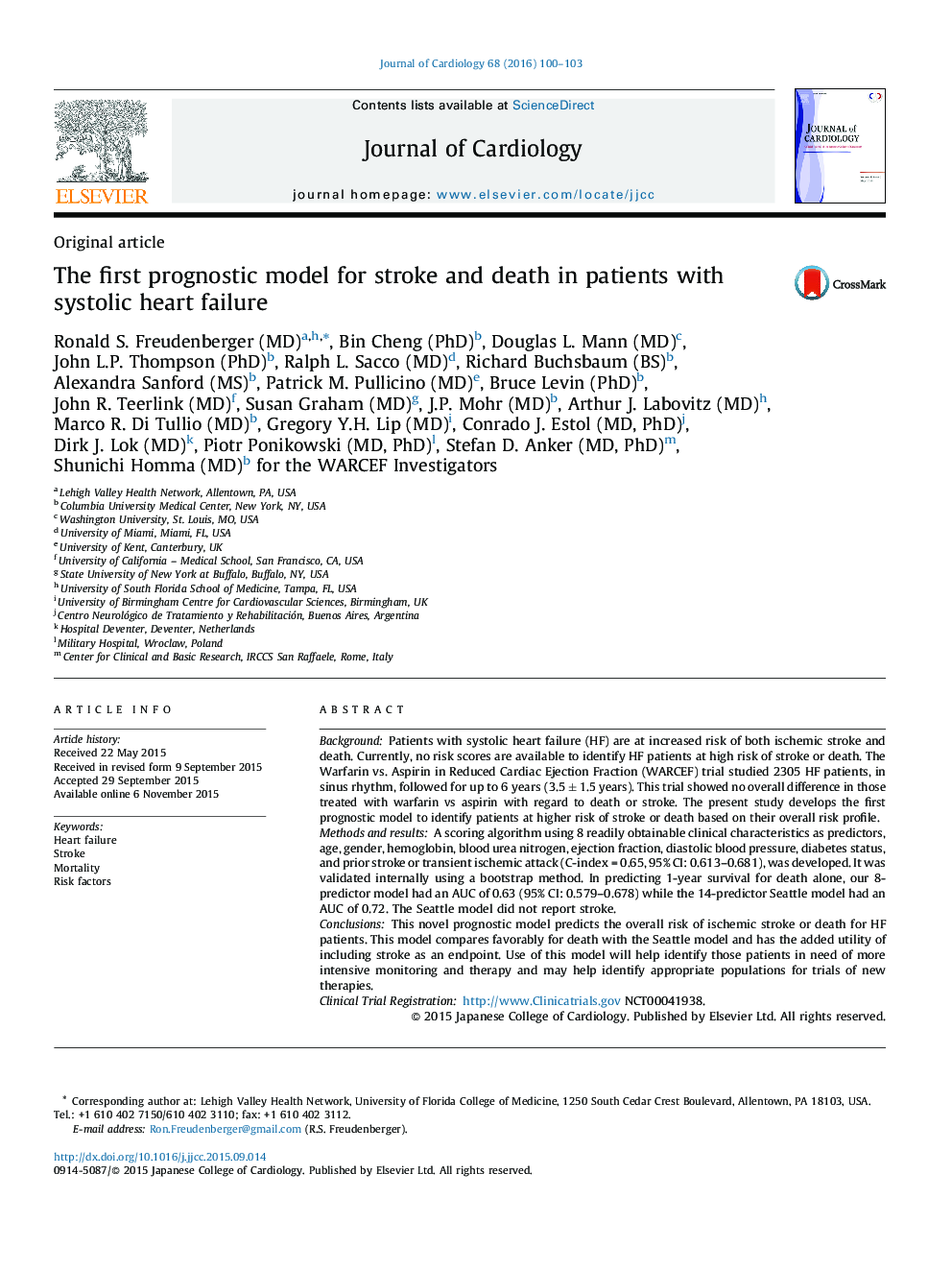| Article ID | Journal | Published Year | Pages | File Type |
|---|---|---|---|---|
| 2962700 | Journal of Cardiology | 2016 | 4 Pages |
BackgroundPatients with systolic heart failure (HF) are at increased risk of both ischemic stroke and death. Currently, no risk scores are available to identify HF patients at high risk of stroke or death. The Warfarin vs. Aspirin in Reduced Cardiac Ejection Fraction (WARCEF) trial studied 2305 HF patients, in sinus rhythm, followed for up to 6 years (3.5 ± 1.5 years). This trial showed no overall difference in those treated with warfarin vs aspirin with regard to death or stroke. The present study develops the first prognostic model to identify patients at higher risk of stroke or death based on their overall risk profile.Methods and resultsA scoring algorithm using 8 readily obtainable clinical characteristics as predictors, age, gender, hemoglobin, blood urea nitrogen, ejection fraction, diastolic blood pressure, diabetes status, and prior stroke or transient ischemic attack (C-index = 0.65, 95% CI: 0.613–0.681), was developed. It was validated internally using a bootstrap method. In predicting 1-year survival for death alone, our 8-predictor model had an AUC of 0.63 (95% CI: 0.579–0.678) while the 14-predictor Seattle model had an AUC of 0.72. The Seattle model did not report stroke.ConclusionsThis novel prognostic model predicts the overall risk of ischemic stroke or death for HF patients. This model compares favorably for death with the Seattle model and has the added utility of including stroke as an endpoint. Use of this model will help identify those patients in need of more intensive monitoring and therapy and may help identify appropriate populations for trials of new therapies.Clinical Trial Registrationhttp://www.Clinicatrials.govNCT00041938.
